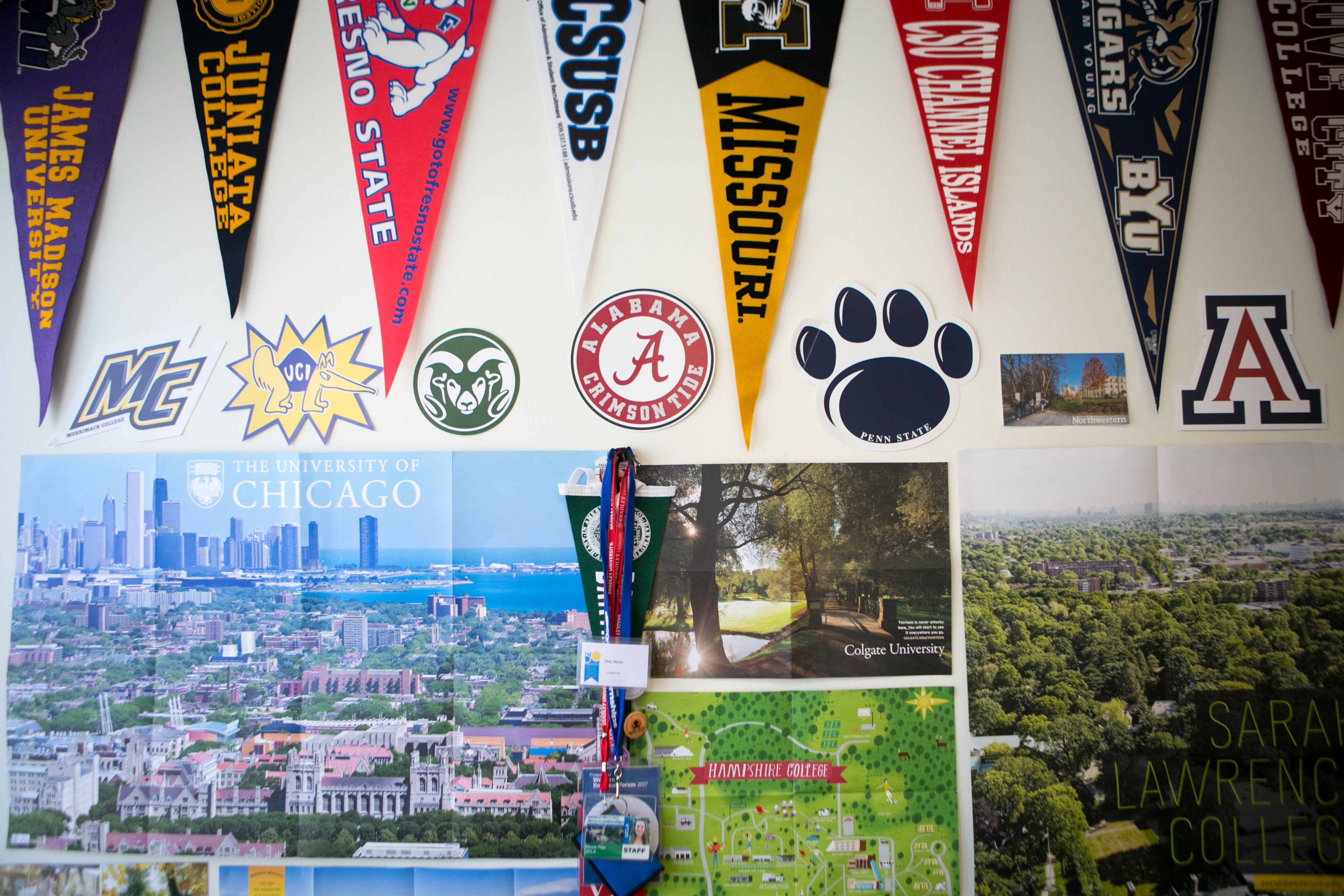We’re getting closer to Decision Day, the deadline for seniors to officially submit their acceptance to their college of choice. With that on the horizon, lots of students are asking how they should evaluate their options to figure out which school is the right choice for them.
In the Before Times, campus visits were a popular way to do that final due diligence. But with COVID restrictions continuing in many areas, they probably won’t be an option this year (although some campuses may be accessible for a walk- or drive-through). The truth is, while visits are great rites-of-passage, they’ve never been necessary for making that final decision; in fact, every year, tons of freshmen first step foot on campus when they arrive for orientation. Clearly, there are other great ways to help you figure out which choice is your best fit.
What do you “need” to know?
Think about it. What would you do on a visit? You’d probably talk to some students – maybe a tour guide, possibly someone(s) from a student panel – to get their perspective on your questions and the school. You’d walk around campus and get a sense of the college’s layout, architecture, and surrounding area to see whether it offers enough green space/bike paths/Gothic architecture/Thai eateries to meet your needs. If you’re super-organized and had planned things in advance, maybe you’d sit in on a class or pay a visit to the academic department of your major to confirm it’s where you’d like to study. And if you’re at all like me, you’d probably swing by the bookstore to at least eye the merch.
All fun interactions – but which of them would most help you make up your mind about whether you want to be there for four years? That’s the question you should be asking yourself. And, crucially, what new information would any of this add to help you make your decision? Once you figure those two things out, you can find alternative resources to help you answer those questions (including some of my favorites below).
Understand your priorities – and how they may have changed
You already know that the school generally offers what you were looking for, or you wouldn’t have applied. (Right? Right.) So as you think about making your final decision, your task is 1) to figure out the critical must-haves that you’re looking for, and 2) chase down that information for your schools.
If financial aid is part of your equation, it’s key to start by understanding the differences between aid offers from each school. (This resource offers great tips on comparing aid packages.) Then, consider how well each school fits with your other priorities. It’s important to recognize that in the time between when you applied and now, some of your priorities may have shifted.
Maybe the pandemic has caused you to be more concerned about job outcomes. Maybe being cooped up for so long made you realize how deeply you value a school’s social life. Having seen how different colleges adapted to the pandemic, maybe you now want to consider their COVID responses as a way to understand their priorities. So start by thinking about what’s most important to you today, and go from there.
That “today” piece doesn’t imply that your priorities are – or should be – fickle, or that you should expect your core values to be constantly shifting. Instead, it’s meant to acknowledge how changing circumstances and deeper reflection can cause you to reevaluate just where everything stands in your college-needs hierarchy.
Resources that can help:
- Unigo. This website’s review section provides student responses to a set of common questions, ranging from the accessibility of professors to how much of a party environment it has. It’s good to use if you have specific questions about a school’s vibe. One word of caution here: Like most review sites, Unigo doesn’t have a lot of neutral write-ups. So if you use it, read through a pool of reviews to find the overall consensus. Otherwise you might end up staking your opinion on a single outlier view.
- Current students/recent grads. If you’re looking for a student perspective, see if you can connect to a Student Ambassador through the Admissions Office. (You’ll probably have the chance to do this during official virtual Admitted Student days, typically held by schools during the spring.) Ask your guidance counselor if there are any recent alumni grads at the college who you could reach out to with questions, or see if you can find friends-of-friends who are current students. Don’t be put off by thinking that it might be awkward to reach out to a stranger; Ambassadors were chosen because they like interacting with prospective students, and anyone you connect with through a friend should have no problem talking about their school for a few minutes. In either case, you can make it easier for them by being prepared with specific questions.
- Social media. Check out the social media accounts of clubs and activities you’re interested in to find out what they’re really like. How active are they? What do they prioritize? Do you want to spend time doing the things they’re calling out and highlighting? Can you see yourself making this a focal point of your time on campus?
- Youniversitytv.com and Google Maps. Use these to augment the official online tours found on school admissions websites. Youniversitytv’s recorded college tours often go beyond the buildings to include things like student takes or glimpses into favorite campus coffee shops. And Google Maps are underrated resources for getting a better sense of a school’s location. “Walk” through the surrounding area to see the size of the college town, how integrated or closed off the campus is, what type of shopping/essential services are nearby, etc.
- YouTube. Good for many things, including understanding the student experience (look for unofficial day-in-the-life posts), and finding more information about specific academic departments/professors.
Think about this as a targeted exercise to stress-test your acceptances against your key priorities, not another deep dive into research. Filling in any hazy pieces now will help you figure out where you can best picture yourself for the next four years.
About Us: With more than twenty years of experience, Collegewise counselors and tutors are at the forefront of the ever-evolving admissions landscape. Our work has always centered on you: the student. And just like we’ve always done, we look for ways for you to be your best self - whether it’s in the classroom, in your applications or in the right-fit college environment. Our range of tools include counseling, test prep, academic tutoring, and essay management, all with the support of our proprietary platform, leading to a 4x higher than average admissions rates.



.png?width=600&height=200&name=Blog%20CTAs%20(7).png)



